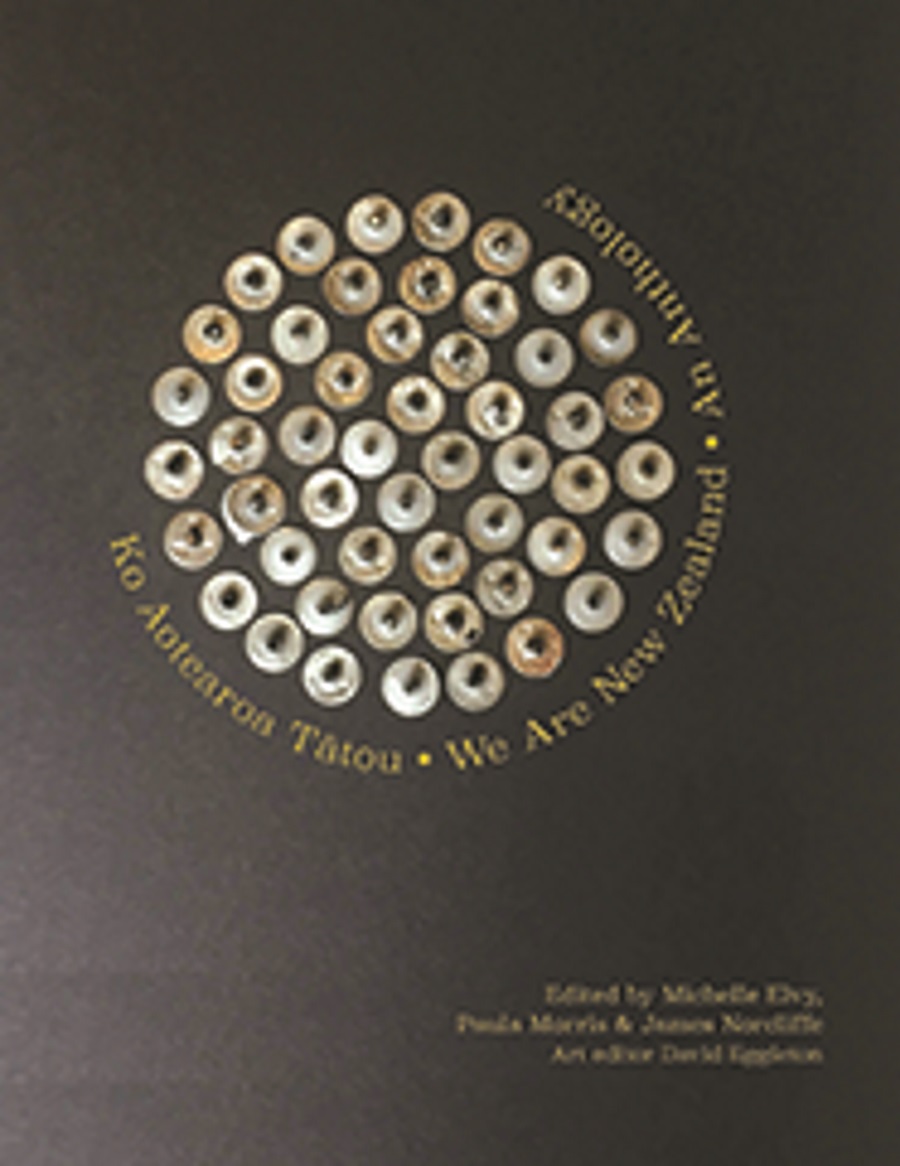KO AOTEAROA TATOU: WE ARE NEW ZEALAND
Ed by Michelle Elvy, Paula Morris, James Norcliffe & David Eggleton
Otago University Press
By CUSHLA McKINNEY
In their introduction, the editors describe this collection, inspired by Jacinda Ardern's declaration in the wake of the Christchurch terrorist attack that ‘‘we are all New Zealanders’’ as an exploration of life in contemporary New Zealand.
The 97 works they have selected, a mixture of essays, stories, poems and visual art, were contributed by writers and artists of all ages, cultures, religions and orientations, and provide a broad cross section of views and experiences that approach the question of who and what we are differently.

Family stories converse with evocations of cultural touchstones and laments for lost lands, language or loved ones. Intimate personal histories are interspersed with critiques of colonialism and assimilation. A photograph of Huka Falls sits alongside the image of a taonga lost to private hands and an abstract etchings of Te Po and Te Ao. The image of sunrise burning atop Mount Taranaki shares space with a collage of digital images, and the view of an instillation to honour those lost on March 15.
It is hard to pick favourites from such a diversity of form and tone, although it is the poetry that has has stayed with me most strongly: the warp and weft of English and Maori that form Tania Roxborogh's Rapurapu/Searching; Selina Tusitala Marsh's glorious Dear John letter to Captain Cook; Fiona Lincoln's delightful riff on the items used to define ‘goods' in the Fair Trading Act; Naomi Simon-Kumar's confronting ‘‘No one likes to hear it’’. But it is the collection as a whole that gives full form to anthology's purpose.
Like Claire Beynon's beautiful mandala for the mosque victims that graces the collection's cover, different pieces speak to one another and with writers past and present, shared experiences that creates smaller patterns within the larger whole. Certain themes stand out: the trauma of colonisation and immigration, of being haunted by memories of a home that no longer exists and living between places and identities; the power of language and impact of its loss; that asking ‘‘where are you from?’’ can be both an act of invitation and rejection.
It is also a celebration of the diversity of who we are now and what could become. A society where, someday, we will be able watch the All Blacks and a Judy Garland firm on the same night. Where young immigrants (and other minorities) will not have to spend their entire childhood waiting to see themselves reflected back in the stories we tell. All of us, together, are New Zealand, a country that is far from perfect and with many lessons yet to learn, but one that will be enriched and strengthened if we are prepared to listen to the words and experiences of all who live here.
Cushla McKinney is a Dunedin scientist













